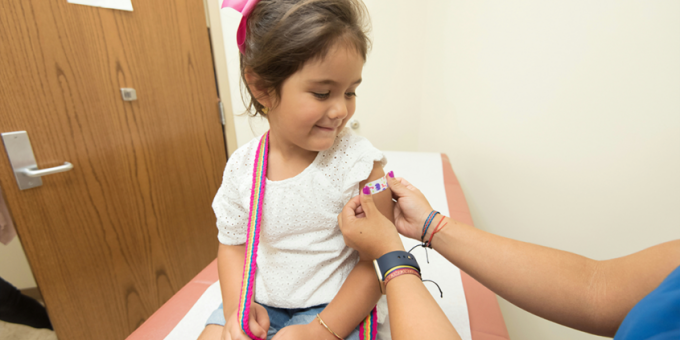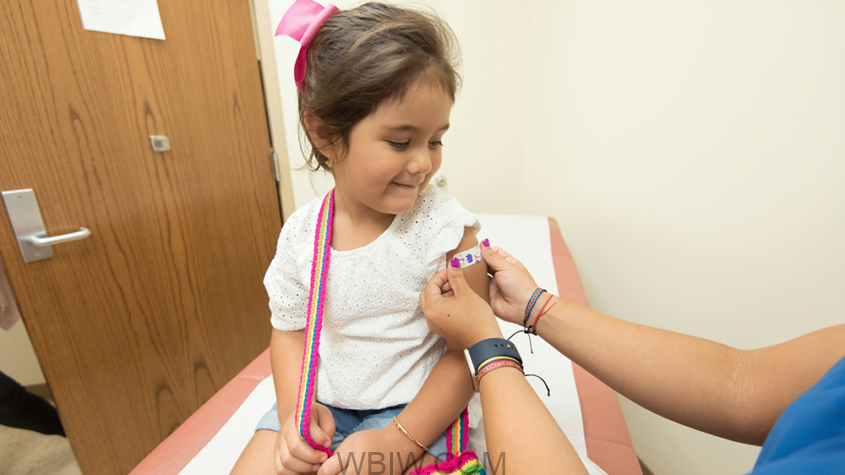
INDIANA – According to the Centers for Disease Control and Prevention (CDC), childhood vaccinations save approximately 4 million lives annually. However, immunization rates continue to decline across Indiana. From 2019 to 2023, the state saw a significant drop in its average immunization rate, which fell from 72% to 56.4%, as the Indiana Department of Health reported.
Although Monroe County remains in the top 10 for vaccination rates, its ranking has dropped from third to ninth. Meanwhile, Greene and Lawrence counties, ranked fifth and eighth, respectively, in 2019, are no longer on the list of top counties for vaccinations.

Dr. Scot Moore, a pediatrician at Riley Children’s Health, attributes this decline to factors such as mistrust in science, resistance to mandates, and the rise of the ‘My body, my choice’ sentiment. He focuses on rebuilding public trust in vaccinations to ensure that Indiana’s children are better protected from the potentially deadly diseases that these immunizations prevent.
“Vaccines were developed to help the body fight diseases that once caused widespread illness and death,” Dr. Moore explains. “Vaccinations introduce inactivated germs or small pieces of germs to the body through shots, nasal sprays, or oral drops. This helps the immune system learn to fight off serious illnesses in the future.”
Dr. Moore stresses that vaccines are safe, effective, and necessary to protect children and the most vulnerable community members. Immunizations help prevent the spread of disease to those who are too young or unable to receive vaccines due to health reasons.
For parents concerned about the cost of vaccinations, Dr. Moore highlights that immunizations are covered under the Affordable Care Act (ACA) as part of routine preventive care for children. This means there are no out-of-pocket costs, including deductibles or copays, regardless of insurance status.

Vaccines are widely available at doctor’s offices, health departments, and sometimes pharmacies. Dr. Moore, a strong advocate for immunizations, ensures children are vaccinated according to the recommended schedule, including the flu and COVID-19 vaccines.
“Parents naturally want the best for their children,” Dr. Moore says. “However, the stories and opinions they hear from others, while often well-meaning, can be misleading. Thanks to advances in science and medical technology, we are fortunate to live in an era where effective and safe vaccines are available.”
The rise in vaccination skepticism, especially during the COVID-19 pandemic, has prompted experts like Dr. Moore to encourage the public to seek out science-based information. He recommends trusted resources such as:
Dr. Moore advises parents who have questions about childhood immunizations to contact their child’s pediatrician, who can provide expert guidance on the importance of vaccines in protecting their child’s health. “Vaccinations have helped save countless lives, and while some diseases may be rare in the U.S. today, they remain common globally,” Dr. Moore says. “For example, measles, a disease we rarely see in the U.S., is rising among unvaccinated children, and it doesn’t have to be this way.”
As of November 21, 2024, the CDC reported 280 measles cases across 32 jurisdictions in the United States, including Indiana. The states experiencing the outbreaks include Arizona, California, Florida, Illinois, Indiana, and others. Of the reported cases, 70% (197 of 280) are outbreak-associated, highlighting a significant increase in cases compared to previous years. In comparison, there were only four outbreaks in 2023, with 49% of cases (29 of 59) linked to outbreaks. Sixteen outbreaks have already been reported in 2024, underscoring the dangers of declining vaccination rates.
These outbreaks are a stark reminder of the risks unvaccinated children face. Many diseases vaccinated against are now rare in the U.S., but measles and other diseases are still prevalent globally.
As the decline in vaccination rates continues, health experts emphasize the need for a united effort to protect all children from preventable diseases, safeguarding public health and well-being for generations to come.
Information: IU Health Hospital.



